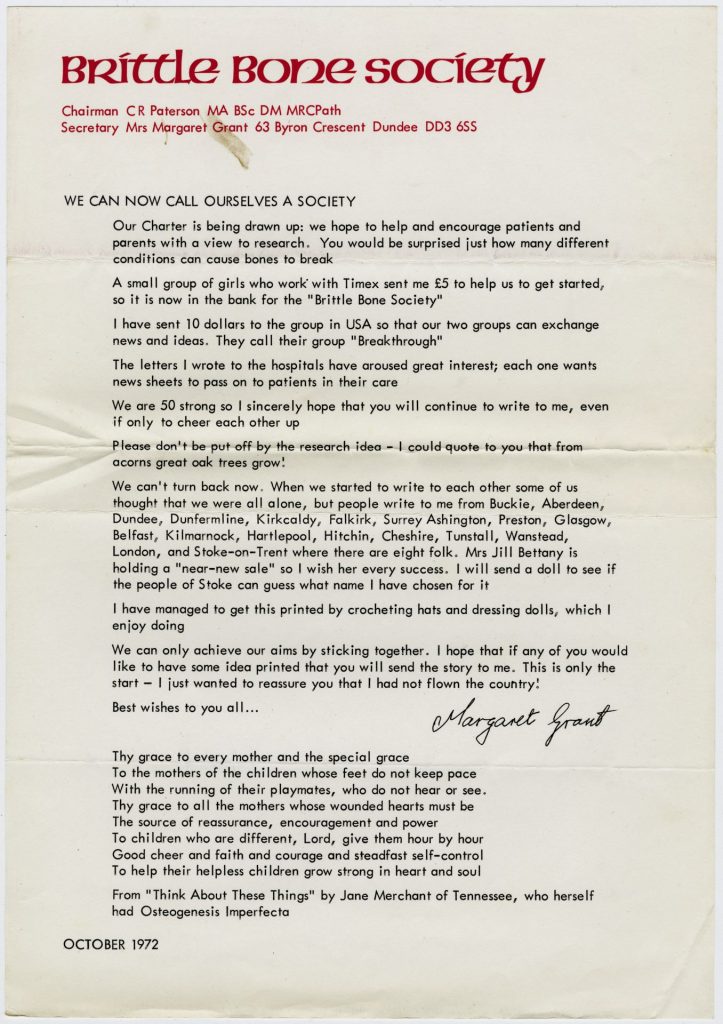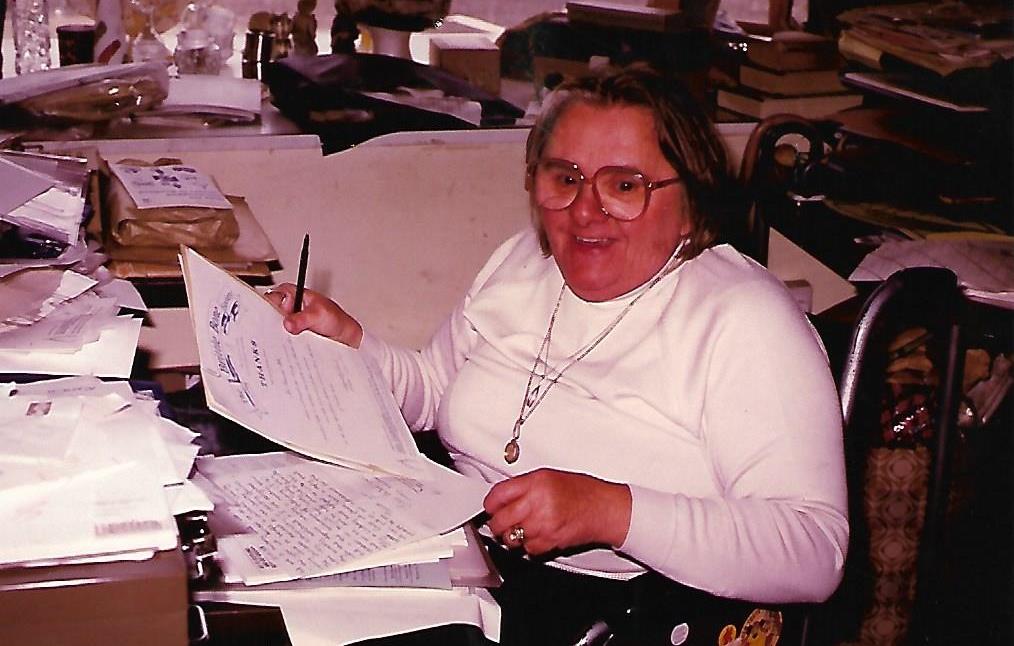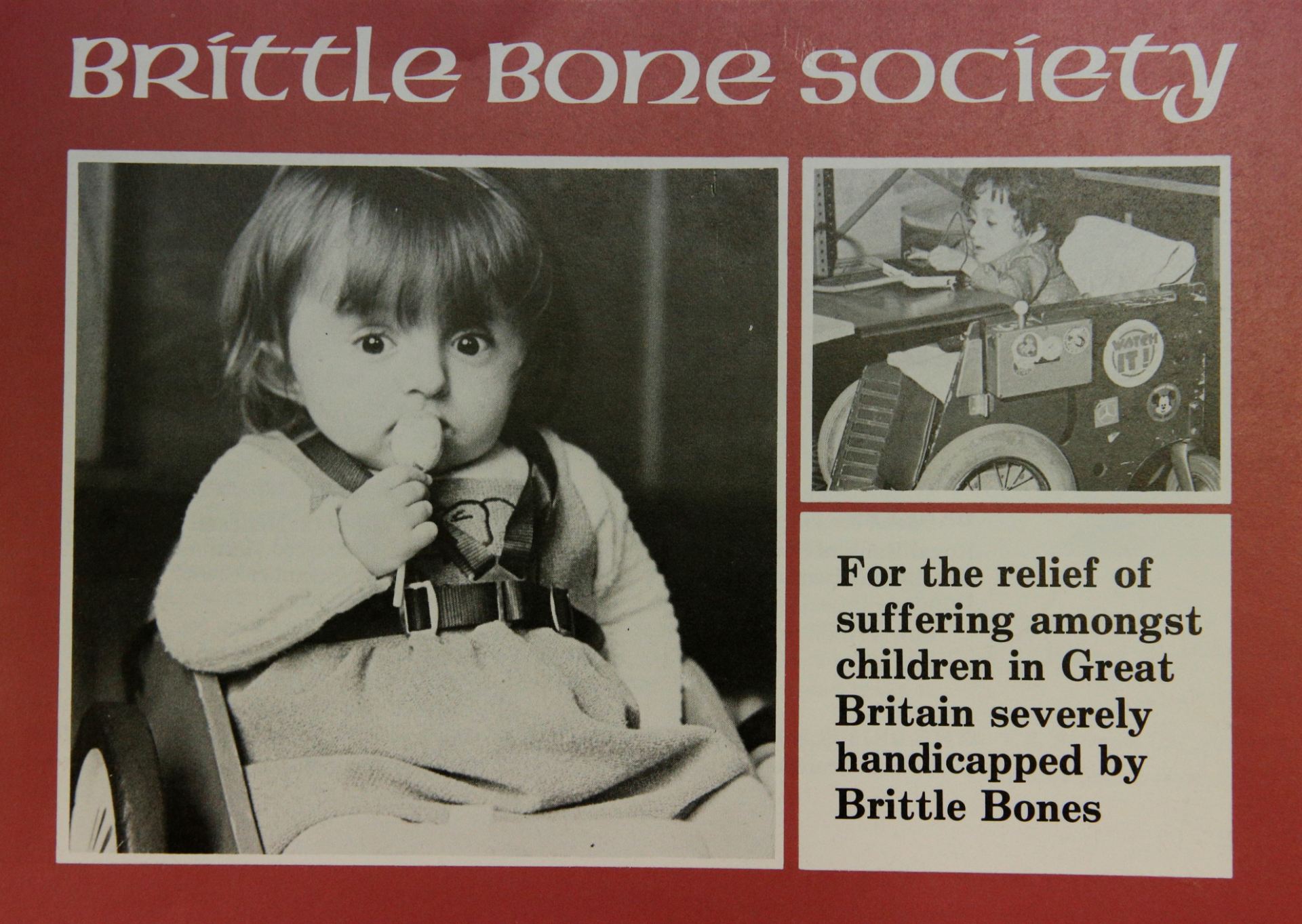Nov 18th to Dec 18th marks this year’s UK Disability History Month, which focuses on the history of disabled people and their battle for equality and human rights. This is an ideal platform to introduce the University Archive’s new project cataloguing the papers of the Brittle Bone Society, a Dundee based charity dedicated to serving the needs of people living with Osteogenesis Imperfecta (OI) throughout the UK and Republic of Ireland.

Osteogenesis Imperfecta (OI) is a genetic bone disorder characterised by fragile bones that break easily. It is also known as brittle bone disease. A person is born with the disorder and affected throughout their lifetime. It is a rare condition, and it is estimated that the number of people born with the OI is approximately one in every 15,000, equating to around 5,000 individuals in the UK.
OI is a disorder of collagen, a protein that forms the framework for the bone structure. The collagen may be of poor quality, or there just may not be enough to support the mineral structure of the bones and other parts of the body, which makes them weak and fragile. OI is caused by genetic changes that affect the amount and quality of collagen. Around three-quarters of cases are inherited from family members and up to a third are new cases.
OI varies widely in severity and there is a classification system to describe its different types. Some people with OI have hardly any symptoms, but in others, OI may lead to physical disability requiring the use of wheelchairs.
OI makes bones liable to fracture at any time, even without trauma. The ligaments stretch more easily. Joint hypermobility results in fatigue of many muscle groups, impairing mobility, and the performance of everyday tasks. Those with OI can also suffer curved bones, scoliosis, short stature, hearing loss, brittle teeth and blue sclerae.

The Brittle Bone Society has been supporting people living with OI since its formation in 1968 by a Dundee resident, Dr Margaret Grant MBE, who herself had OI. Margaret’s story and the foundation of the society is deserving of its own blog post. The society grew from a local group to a national charity now covering the UK and Republic of Ireland. It is also likely the oldest charity specifically for assisting people with OI in the world and has been the model for similar societies in other countries since. This progression from humble beginnings in Dundee to a nationally recognised organisation is charted in the archive of the Brittle Bone Society.

To date the collection has only been used for the Brittle Bone Society exhibition “History Bones” to celebrate the society’s 50th anniversary. Over the next year the collection will be catalogued, and this will be complimented by a series of oral history interviews with members of the society, ensuring that their experiences are captured for future generations to learn from. This blog will hopefully be the first of a regular series that will run for the rest of the project, so watch this space!

You can find more information and resources on Osteogenesis Imperfecta and the work of the Brittle Bone Society on their website: brittlebone.org
Alasdair Bachell – Project Archivist

Thank you for honouring my Mums life time of Work and dedication for those she cared and loved deeply. She was a Dundonian through and loved its people, its working ethos and those she helped through many generations. What a lovely date to release this archive the date of her passing. Thank you. This would mean so much to her. Be Blessed.
Thank you so much for the comment. We are honoured to preserve the work of your mother, your family and all those who have helped the Society. We hope that this project ensures that they aren’t forgotten and that the archive will have a positive impact on those who have the condition now and in the future.